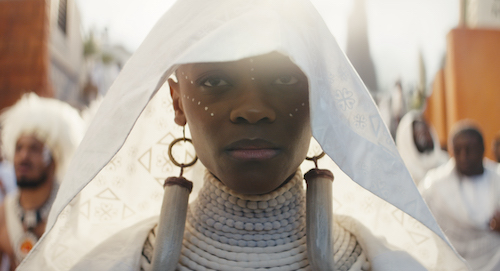
How many times did you watch Marvel's Black Panther: Wakanda Forever over the weekend? No matter how many, we're sure the movie's blend of exhilarating action and grief-laden poignancy struck a powerful chord.
The movie is an important step in the Marvel Cinematic Universe (MCU) for several reasons. Not only do we bid farewell to Chadwick Boseman's T'Challa (his absence fuels the entire movie), but we also drop the curtain on Phase Four of the MCU.
Many important questions now remain as to the future of the Black Panther franchise and its potential impact on Phases Five and Six of the MCU. With spoilers, we've addressed some of the most intriguing and exciting conundrums.
WARNING: BLACK PANTHER SPOILERS AHEAD
1. Shuri is our new Black Panther
We imagine that many of you cheered when Shuri adopts her late brother's mantle and drops in unannounced during the fugitive Wakandan council. Replete in her new T'Challa costume, Shuri immediately stakes her claim to the superhero legacy, although she initially appears to lack the discipline that distinguished her brother.
Consumed with rage over Namor's (Tenoch Huerta) actions, which resulted in the death of her mother Ramonda (Angela Bassett), Shuri only learns to repent during the final battle with the Atlanteans.
Poised to kill her underwater nemesis, Shuri instead capitulates and lets Namor live, realising that grief binds the two of them together. By reaching this new level of maturity, Shuri is finally worthy of both the suit and its attendant responsibility, as she promises to carry a devastated Wakanda into a brighter future.
Shuri is our new Black Panther and we imagine it will take a few more Marvel movies, both solo and ensemble efforts, for the character to conquer her raw impulsiveness. We're sure it'll be an entertaining and emotional journey.
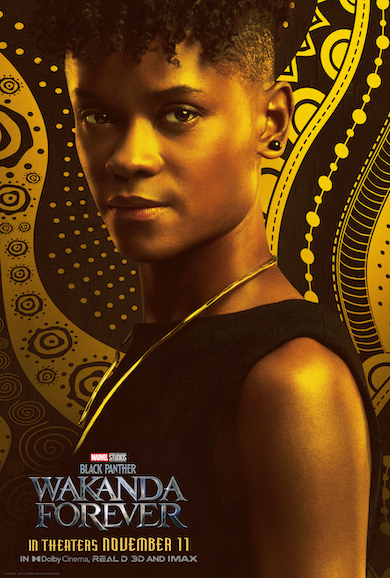
2. T'Challa and Nakia's son could take over after Shuri
The most emotional mid-credits scene in the entire MCU? We're calling it. Having returned to her home in Haiti, former Dora Milaje spy Nakia (Lupita Nyong'o) unveils the movie's biggest emotional surprise. It turns out that between the events of Avengers: Endgame and Wakanda Forever she and the late T'Challa bore a son, who movingly now bears his father's name.
Shuri's alternately tearful and overjoyed reaction ably mirrors our own. Once the ramifications have settled in, we start to ask questions. Young T'Challa is played by a complete newcomer, a kid who's potentially just the right age to grow into the Black Panther legend over the course of the next decade or so.
Maybe once Letitia Wright is ready to bow out as Shuri, a brand new T'Challa will be waiting in the wings. Expect this to happen after the events of Avengers: Secret Wars (released in 2026) at the earliest.
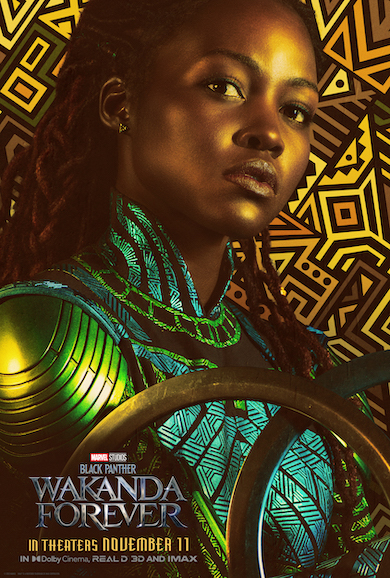
3. M'Baku could become the new king of Wakanda
Having been denied the Wakandan crown in the first Black Panther movie, Jabari tribe leader M'Baku (the reliably scene-stealing Winston Duke) isn't about to pass up the same chance again.
Wakanda Forever concludes with M'Baku leaping from a transport ship into the ceremonial warrior arena. He vows to challenge anyone who steps up, although the movie cuts away before we see the consequences of his actions.
Given that M'Baku was only a narrow second to T'Challa in the first Black Panther movie, will he remain unchallenged to claim the throne of Wakanda by default? It would be a neat way to foreground an increasingly popular Marvel character whose dry humour is much-needed to offset the doom-laden grief stalking the edges of the franchise.
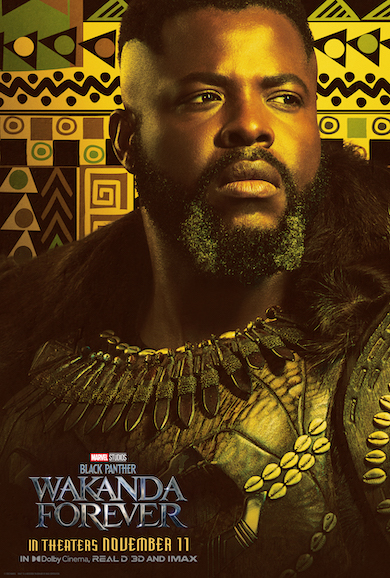
4. Riri Williams/Ironheart will become a pivotal new superhero
In Wakanda Forever, genius Boston engineering student Riri Williams (Dominique Thorne) is granted protection by Wakanda. This is because the development of her new machine has been powered by the very same vibranium located atop the secretive kingdom of Talocan (in other words, Atlantis). Namor and his people seek revenge against Riri for inadvertently exposing their lair.
Riri eventually goes from fugitive to valued ally as she works with Shuri in her lab to develop important new technologies. These will help protect Wakanda against Namor's invasive forces.
Only at the end of the film do we get to see Riri's comic-book alter-ego Ironheart in action: a flying red suit (echoes of Iron Man) that is armed with serious firepower. Such a design builds on Riri's initial conception, a much cruder build that's deployed when she, Shuri and Okoye (Danai Gurira) must escape the CIA in Boston.
Riri is about to get her own Disney+ series and we're all but guaranteed to see more of her on the big screen. Expect Riri/Ironheart to become an important part of the upcoming ensemble movies Avengers: Kang Dynasty and Avengers: Secret Wars.

5. Namor and the Atlanteans could become recurring villains
Wakanda Forever is unusual for a Marvel movie in that the main villain, Namor, doesn't die. Instead, he appears to reach an accord with Shuri and the rest of Wakanda, retreating back to his underwater lair after she spares his life.
This is potentially a big mistake. Throughout the movie, Namor warns of Wakanda's vulnerability in the modern world, poised as it is on a knife's edge between full disclosure of its vibranium reserves, and the potential exploitation of said reserves by greedy outside forces. (This is something that Ramonda warns against during her opening United Nations address.)
Namor is acutely aware that he doesn't need to attack Wakanda again. Instead, he can wait for the wider world to wage war on the secretive Afrofuturist kingdom, potentially allowing Talocan to rise and fill the void.
The seeds of this brewing conflict are hinted at during the fractious relationship between CIA operative Everett Ross (Martin Freeman), who expresses loyalty to Wakanda, and his superior Valentina Allegra de Fontaine (Julia Louis-Dreyfus) who regards the kingdom with hostility and suspicion.
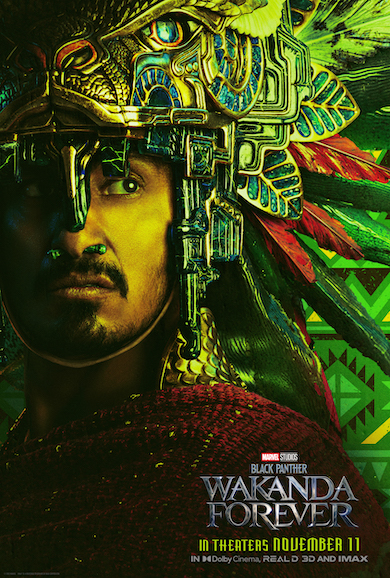
6. Valentina Allegra de Fontaine may be established as a new big bad
Valentina makes her first proper MCU movie appearance, following her brief walk-on at the end of Black Widow and her small screen role in The Falcon and the Winter Soldier.
As mentioned, she's something of a power broker and may be brewing for an all-out war with Wakanda, having had her former beau Everett arrested for expressing allegiance to the Wakandan people. (He's later rescued by Dora Milaje operative Okoye, played by Danai Gurira.)
Previous movies in the MCU have played out against a backdrop of bureaucratic power-play. 2014's Captain America: The Winter Soldier is a superior example, revealing how the Nazi splinter organisation HYDRA had infiltrated the highest ranks of the American government.
Wakanda Forever may be laying the groundwork for more of these complicated machinations in a future MCU movie. Valentina will likely emerge as a dangerous insurgent threat, maybe more dangerous than enemies stemming from the multiverse or a distant corner of the galaxy.
7. New vibranium deposits could power the MCU
It was believed that Wakanda housed all of the world's vibranium resources. However, the events of Wakanda Forever disprove this. To Shuri and Ramonda's immense shock, they discover that a rich deposit of vibranium has been located on the Atlantic seabed, which prompts retaliation from the vengeful Talocan kingdom after their home is almost exposed to the wider world.
We expect there to be more revelations about the strategic placement of vibranium as the MCU proceeds into phases five and six. Who knows, this could be the spark that ignites conflict between existing allies and enemies, and it could also expose previously hidden threats a la the Talocan people in Wakanda Forever.
8. Ayo and Aneka could steal the Midnight Angel armour
In the original Marvel comics, the Midnight Angels were a splinter faction of Wakanda's Dora Milaje forces. Ultimately, Dora Milaje operatives Aneka and Ayo (played in Wakanda Forever by Michael Coel and Florence Kasumba) lost faith in the Wakandan royal family and defected from the Dora Milaje, stealing the Midnight Angels armour and using their abilities to liberate Wakanda's oppressed individuals.
We were expecting this Ayo/Aneka sub-plot to feature in Wakanda Forever but it came to naught. No matter – there's plenty of time for later MCU movies to establish this important storyline. And indeed, the seeds have already been sown.
After initially being expelled from the Dora Milaje by an angry Ramonda, Okoye is brought back into the fold. She ultimately sports the blue and gold suit that has been glimpsed on and off in Shuri's lab throughout the movie (something that Okoye initially regards with derision), using it to help defeat the Atlanteans.
Although Okoye was not a part of the Midnight Angels in the comics, it seems as if Ryan Coogler and the filmmakers have tweaked the origins of the group. Not to mention that Aneka is, herself, glimpsed wearing a blue suit of armour during the final fight with Namor's forces.
A stolen kiss between Ayo and Aneka, seen at the end of Wakanda Forever, may hint at the sort of deep-seated alliance that will fuel reckless action in a future MCU movie.
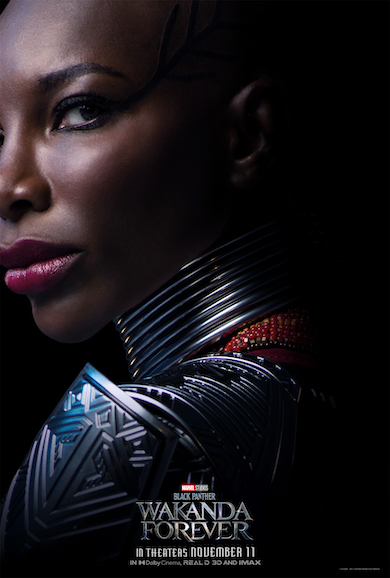
9. The ancestral plane could be used to reinstate deceased characters
It's both a massive shock and a massive delight to welcome Michael B. Jordan's Killmonger back to the MCU. He appears in Wakanda Forever when Shuri ingests her synthetically engineered heart-shaped herb, designed to take her inside the ancestral plane and divine important answers from those who have been lost.
However, Shuri is enraged and dispirited when she is instead greeted by the ghost of the villainous Killmonger, the ex-mercenary who attempted to claim the Wakandan throne in the previous movie. He mocks Shuri for continuing to show allegiance to her brother's legacy, questioning whether she will follow T'Challa's path or continue one of vengeance.
Upon returning to reality, Shuri decries the existence of the ancestral plane. What is there to strive for if there is seemingly no hope or chance for redemption beyond the land of the living? It seems as if Killmonger's philosophy has made its mark when she vows vengeance on Namor for killing her mother Ramonda, but ultimately Shuri embraces the path of nobility and spares his life.
We imagine that the ancestral plane will be accessed in future Black Panther movies (and maybe even outside of them?) If Shuri needs more guidance from those who have passed on, it could be a poignant and stirring way of bringing back the likes of Angela Bassett's now-deceased Ramonda, however briefly.
It may also allow the filmmakers to reinstate the hugely popular Killmonger again, his malevolent spirit attempting to sway the direction of travel in Wakanda by manipulating either Shuri or M'Baku (assuming the latter ascends to the throne).
Can't wait to return to Wakanda again? Click here to book your tickets for Black Panther: Wakanda Forever, on release now at Cineworld cinemas.
Don't forget to tweet us your theories as to the MCU's future @Cineworld.





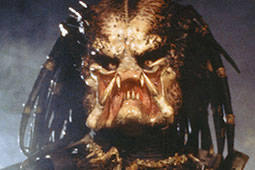


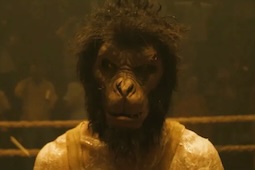


.jpg)


.jpg)
.png)






